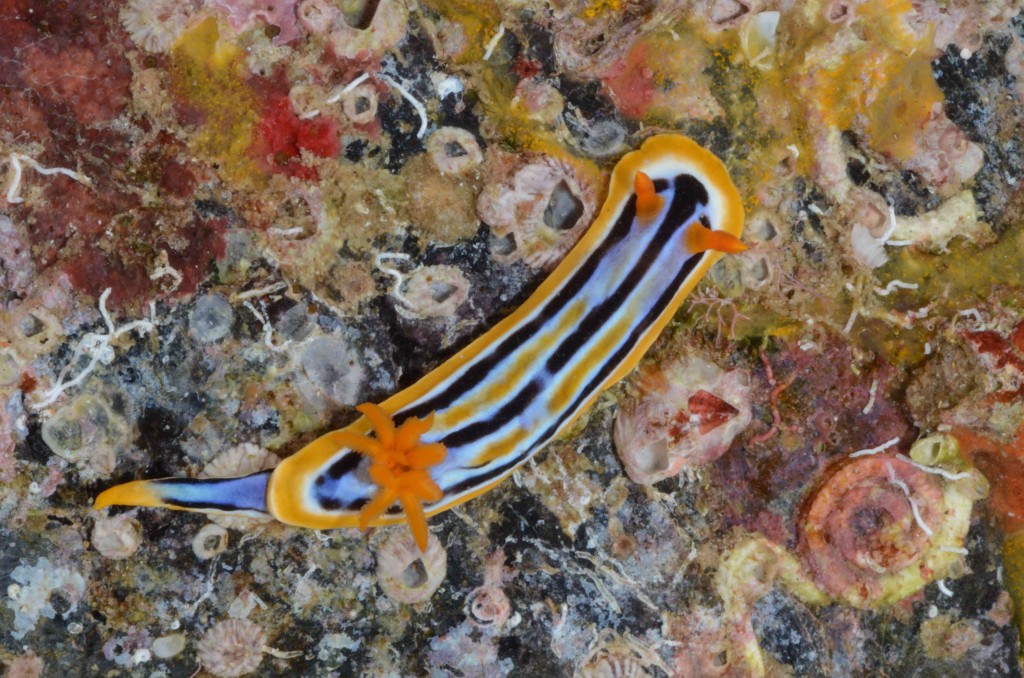
Chromodoris hamiltoni (Barra reefs, Inhambane, Mozambique)
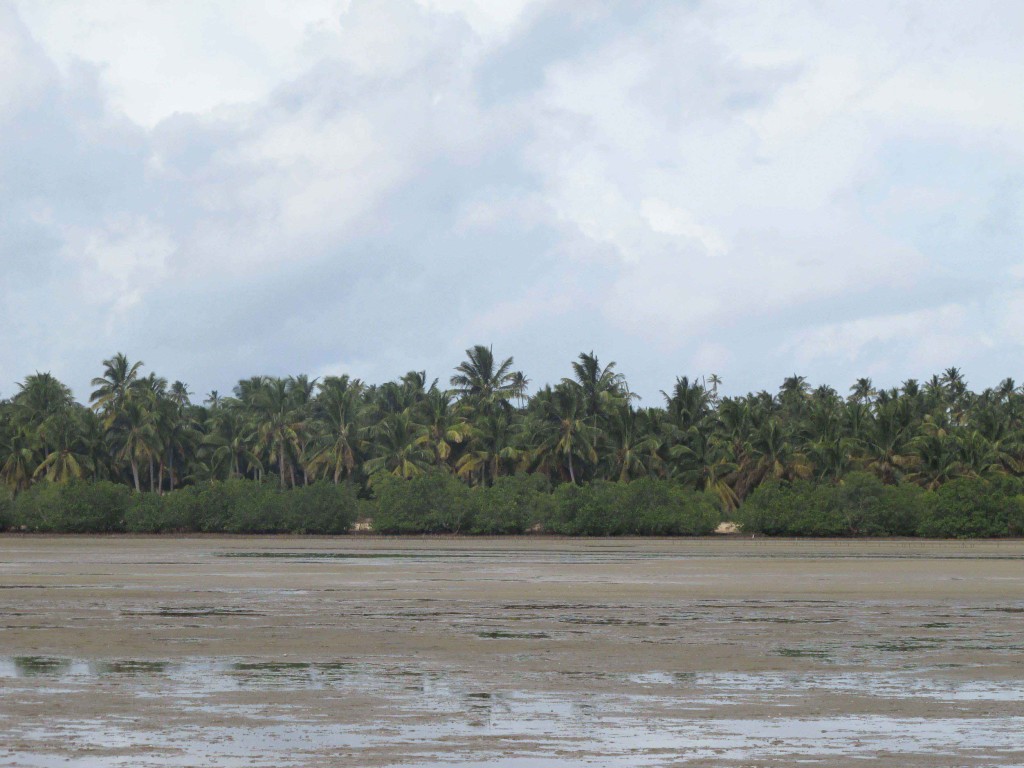
A sand flat lined with mangroves and coconut trees (Barra estuary, Inhambane, Mozambique)
The tropical Indo-West Pacific harbours the highest diversity of marine life in the World with many species still undescribed. In the region, the eastern coast of Africa is one of the less studied areas and few opisthobranchs gastropods have been recorded in Mozambique with a coastline of 2,700 km stretching across sub-tropical and tropical latitudes.
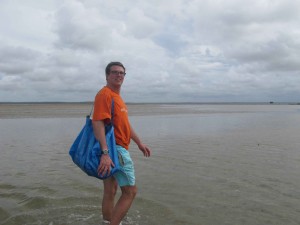
Heading for sampling on a sand flat with seagrass (Barra estuary, Inhambane, Mozambique)
Together with colleagues from the Zavora Marine Lab (Mozambique) I will be surveying the southern part of Mozambique between the village of Zavora – approximately 500 km north of the border with South Africa – and the tropical archipelago of Bazaruto. This 3-weeks fieldtrip (16 Jan–6 Feb) is part of an effort to document the diversity of opisthobranchs at a global scale and to understand the biogeography and speciation patterns of these molluscs.
After a couple of initial days in Zavora we headed north to the region of Inhambane, famous for its aggregations of manta rays and whale sharks where we spent about a week sampling for the far most spectacular sea slugs!
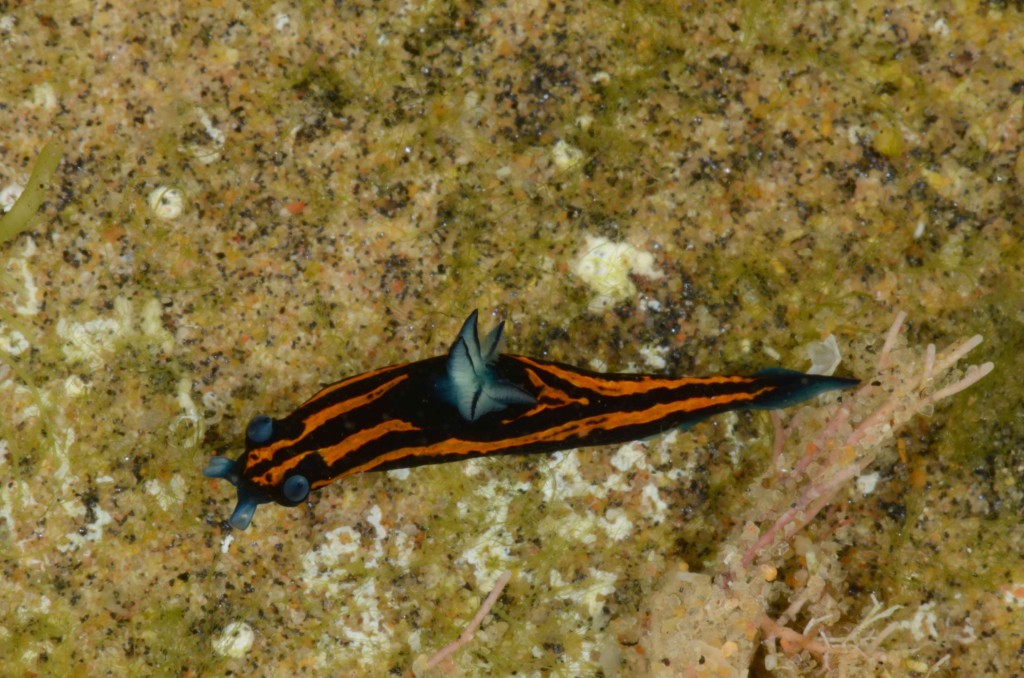
Roboastra gracilis (Paindane, Inhambane, Mozambique)
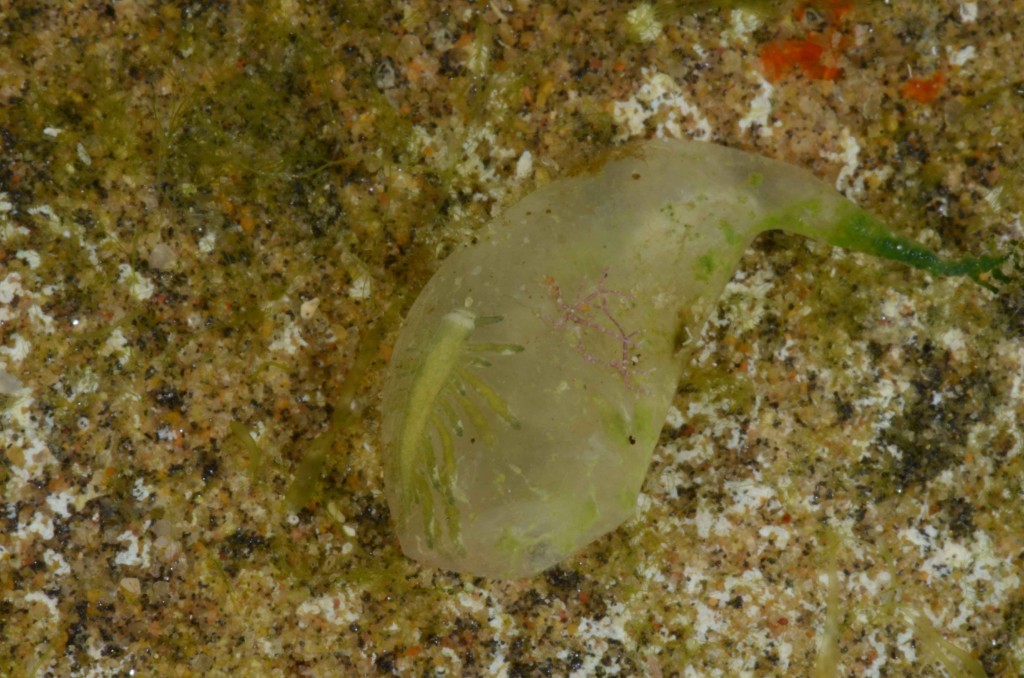
A species of sacoglossan (Placida sp.) found inside the “bubble” algae Valonia sp where it lives and feeds from.
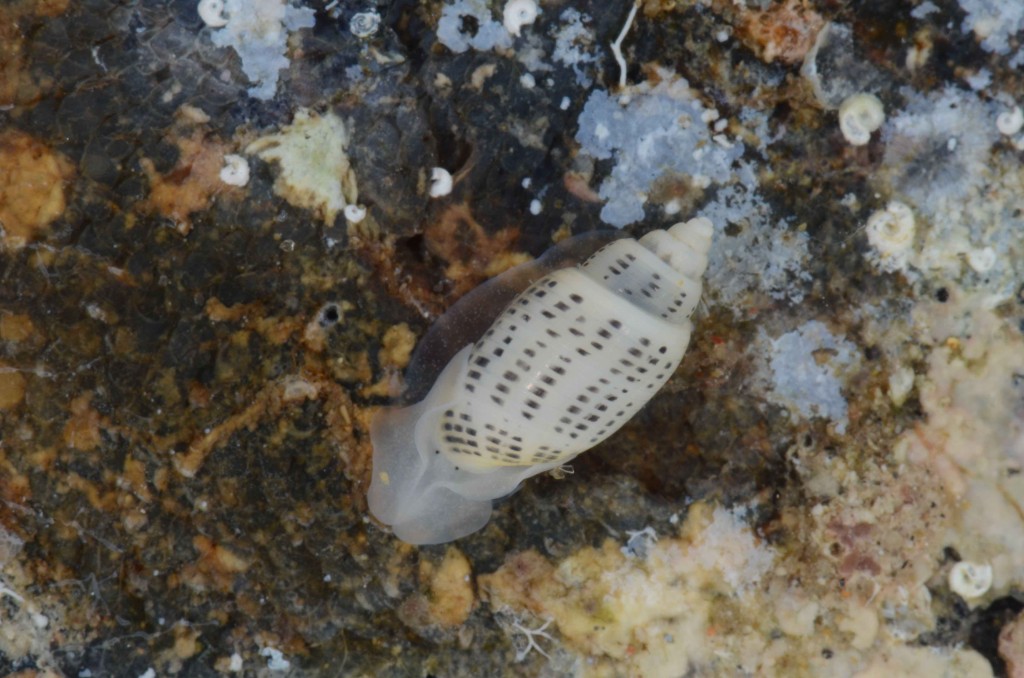
Pupa solidula (Barra estuary, Inhambane, Mozambique)
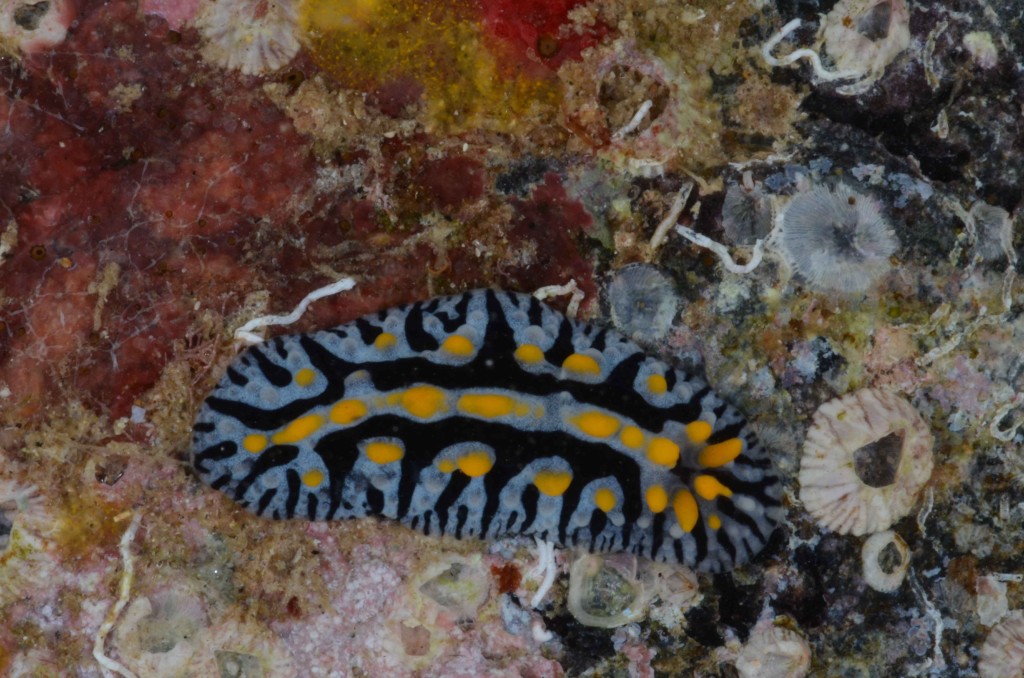
Phyllidia marindica (Barra reefs, Inhambane, Mozambique)
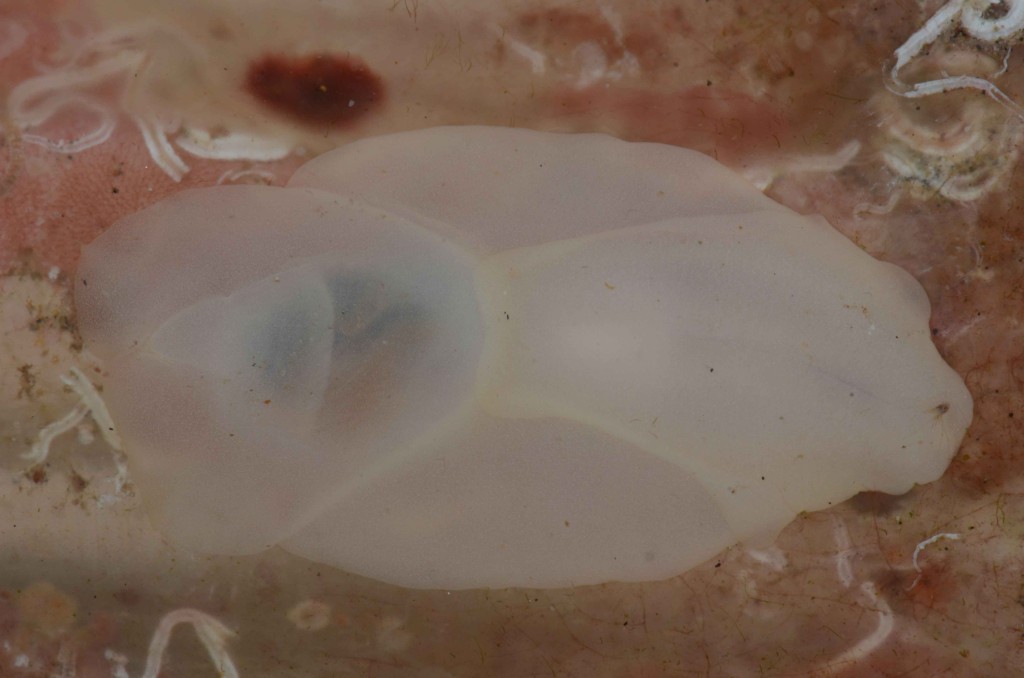
Philine aperta (Barra estuary, Inhambane, Mozambique)
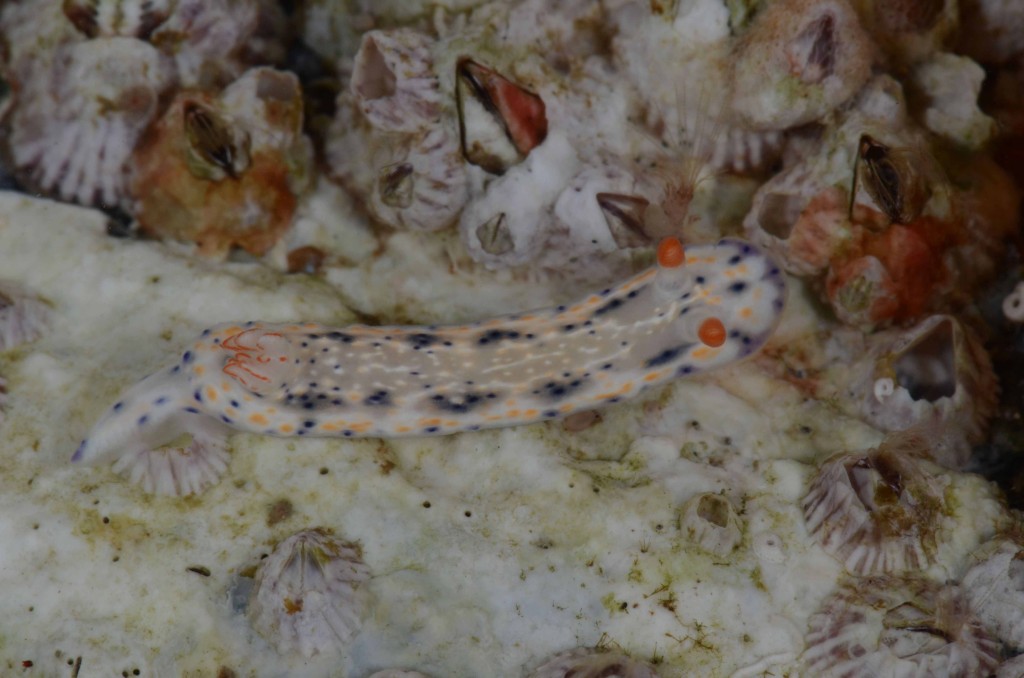
Hypselodoris rudmani (Barra reefs, Inhambane, Mozambique)
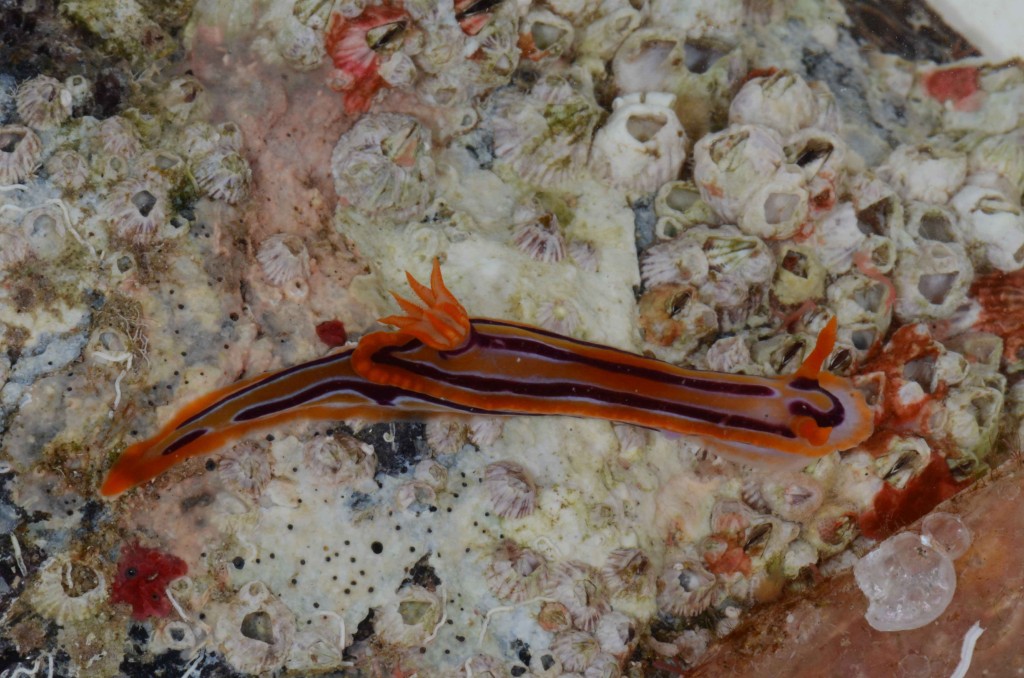
Hypselodoris regina (Barra reefs, Inhambane, Mozambique)
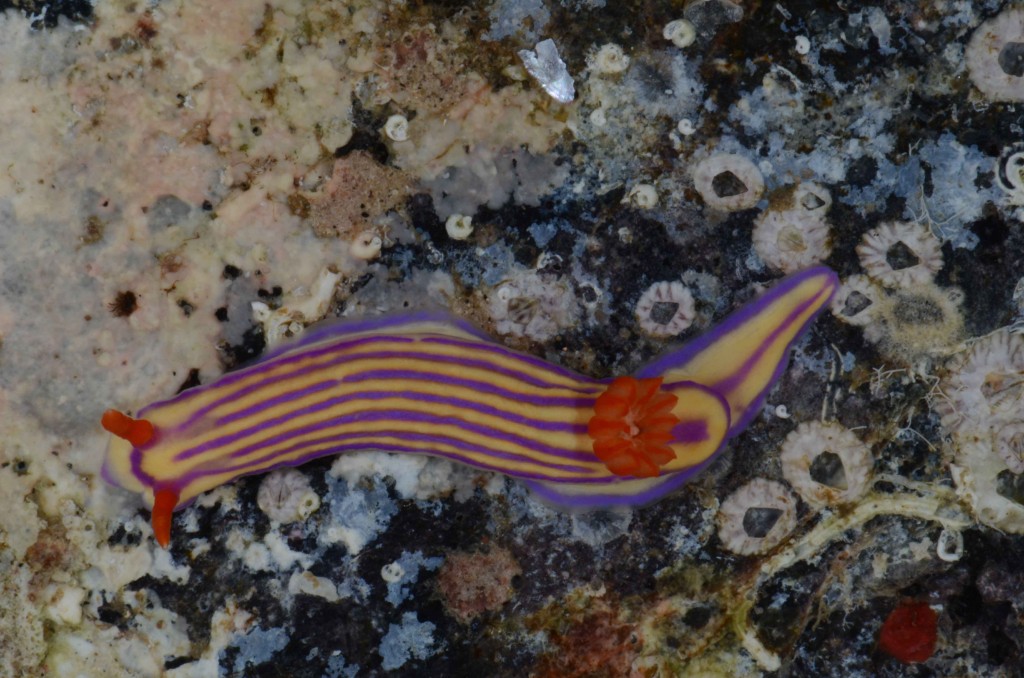
Hypselodoris maridadilus (Barra reefs, Inhambane, Mozambique)
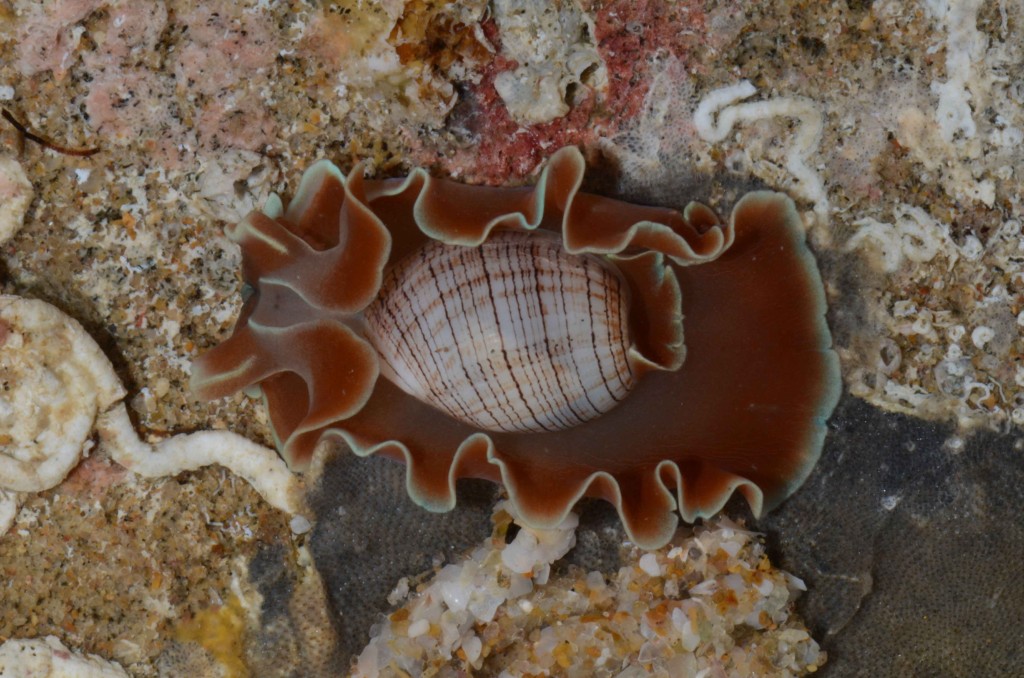
The flamboyant cephalaspidean species Hydatina physis (Zavora, Inharrime, Mozambique)
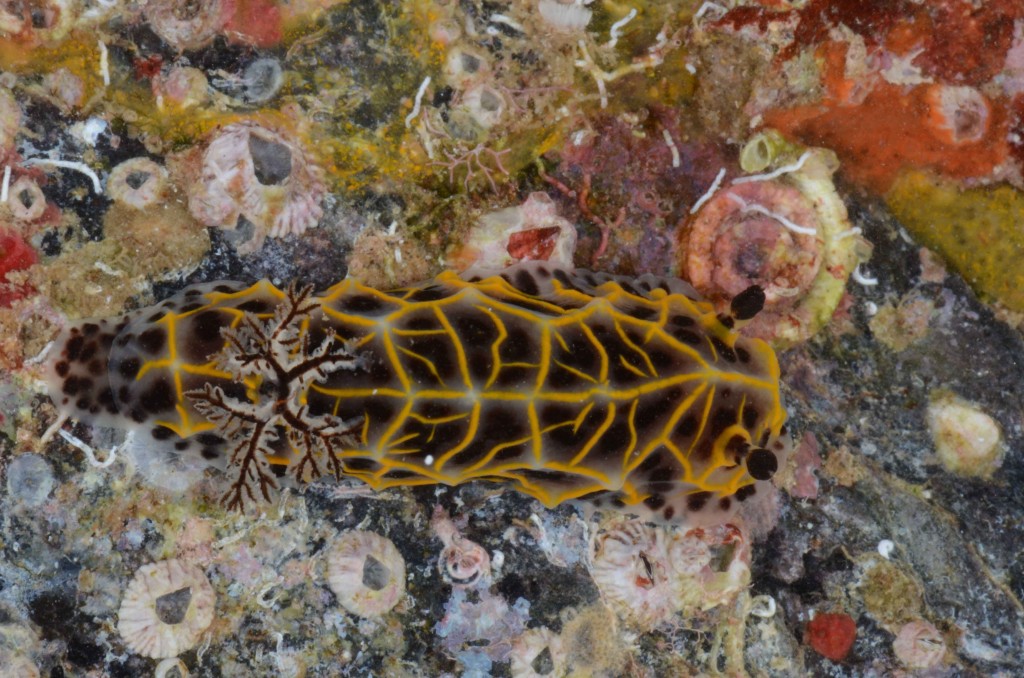
Halgerda wasinensis (Barra reefs, Inhambane, Mozambique)
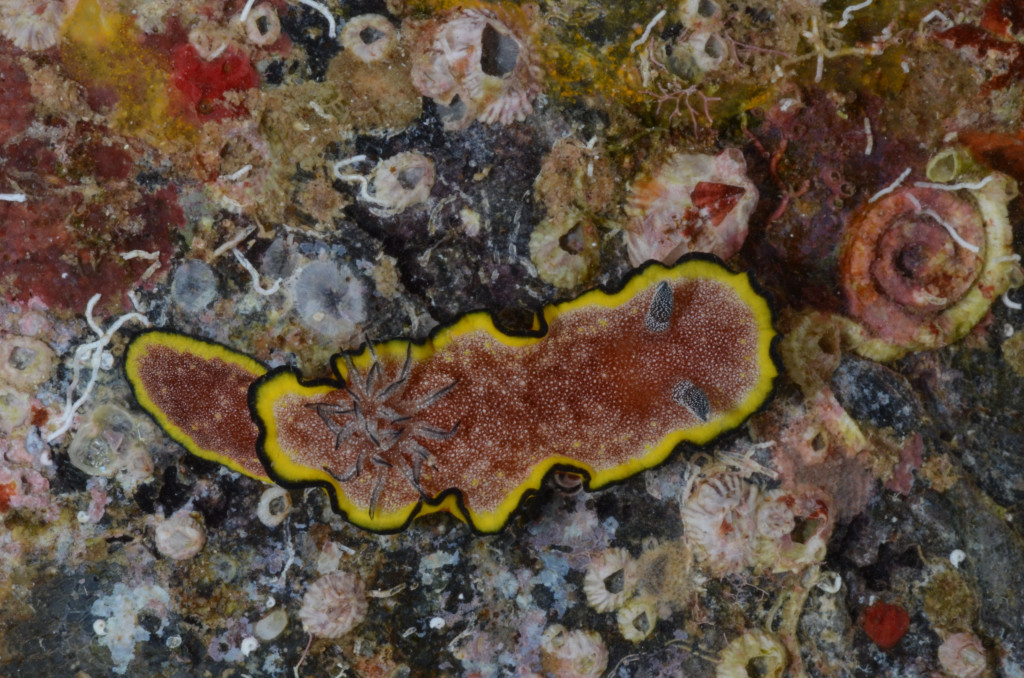
Glossodoris cf. plumbea (Barra reefs, Inhambane, Mozambique)
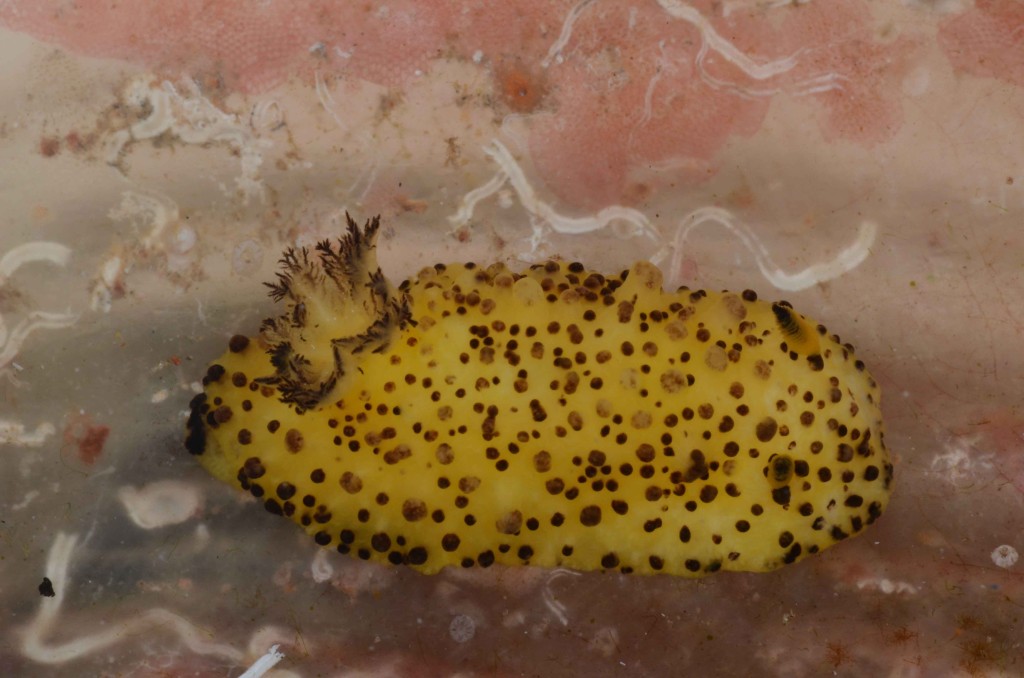
An undescribed species of Doris nudibranch (Barra reefs, Inhambane, Mozambique)
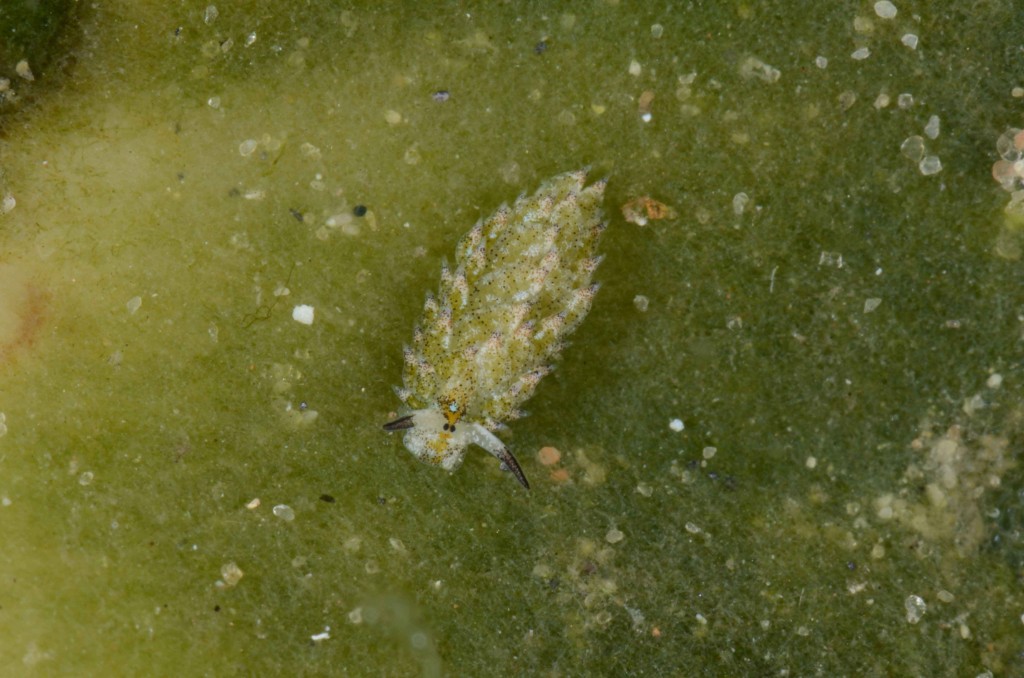
Costasiella kuroshimae, a sacoglossan that lives on the green algae Avrainvillea sp. (Barra estuary, Inhambane, Mozambique)
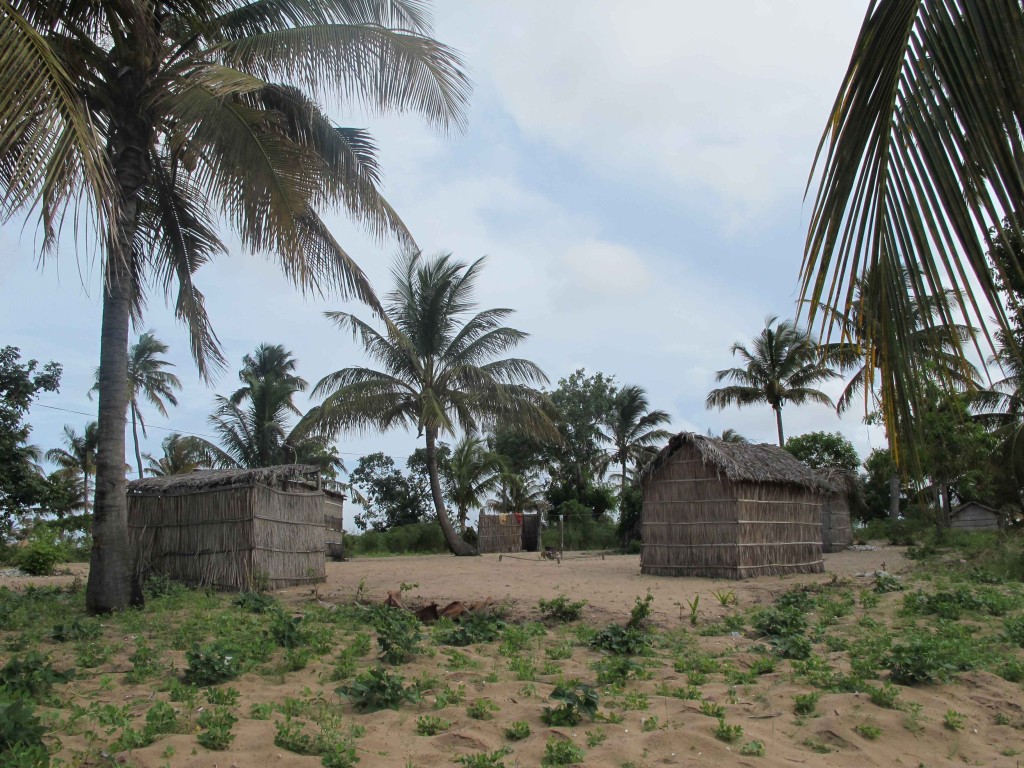
Traditional Mozambican family housing with huts arranged in a circle around a communal central area

















